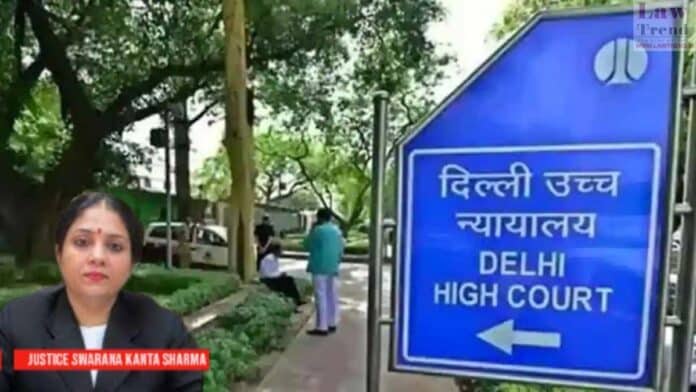Taking note of sexual assault cases of girls and boys who are blackmailed on the basis of their inappropriate videos or photographs, the Delhi High Court has asked the state legal services authority to educate youngsters against posting “intimate” content of others on social media without their consent.
Justice Swarana Kanta Sharma refused to grant bail to a young boy accused of sexually assaulting a minor girl on the threat of exposing her objectionable pictures, and said innocent, consensual teenage love relationship has to be distinguished from sexual abuse under threat, pressure, blackmailing and violence.
In the present case, the court said, the 17-year-old victim was put under the fear of social shaming on account of certain objectionable images and videos captured by the accused, aged 19 years, without her consent, and was also being threatened to get her to change her religion in order to be able to get married to him.

“He (the accused) was using the sexualised photos and videos as a tool to threaten, socially shame, embarrass, defame and blackmail her to coerce her into sexual relationship,” said the court in its order passed on May 11.
“Considering the fact that the applicant/accused is continuously threatening and blackmailing the prosecutrix and the charges are yet to be framed and the prosecutrix is yet to be examined, this court is not inclined to grant any relief to the applicant at this stage,” it said.
“This court requests Delhi State Legal Services Authority (DSLSA) to formulate a programme whereby they may educate the students, potential vulnerable victims as well as educating the teenagers who may indulge in such crimes without knowing that posting such intimate content on social media without consent of the person concerned is in violation of law,” stated the court.
In the present case, an FIR was registered against the accused for the commission of offences under the Indian Penal Code and Protection of Children from Sexual Offences Act.
The accused, Sakib Ahmed, claimed that he had been falsely implicated and that he and the prosecutrix had known each other for around three years and the relations between them were consensual in nature.
The court, however, observed that in this case, the accused not only captured video recordings and photographs of their relationship but also continuously threatened to post them on social media to continue her sexual exploitation.
Therefore, it did “not fall under the category of those cases where the relationship is consensual without any threat or criminality”, it said.
“To sum up, had it been a case of consensual adolescent mutual love as argued by the learned counsel for the applicant, it would have no place of abusing, blackmailing, inducement, threat, violence, pressurising and threatening her to convert to his religion for the purpose of forcibly getting married to her even when she wanted to get out of the abusive relationship.
“She was put under fear and threat of social shaming of herself and her family, which does not indicate that it was a consensual innocent adolescent mutual love relationship,” noted the court.
Also Read
“This court also notes that in a large percentage of cases of sexual assault received by this court, the victims have alleged that inappropriate videos or photographs of relationships are made by one of the parties and under threat of posting them on social media, the minor girls are sexually abused who do not understand or know as to how to deal with such situations.
“Even at times, this court has witnessed cases where young boys have been sexually abused, assaulted and have been victims of such blackmailing,” it added.
The court, in its order, further stated that while considering a bail plea by an accused, “actual threat or attempted threat” to a witness must be kept in mind and it was its duty “ensure the safety and security of the victim”.
While it is a fundamental right of accused to personal liberty, the Constitution gives right to life, liberty and security to the victim also, added the court.







